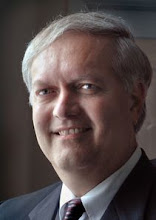 An interesting appeal is presently pending in federal court in Washington, D.C. According to the Daily Report, the appeal involves a petition by a retired Washington Post reporter who is seeking information via a FOIA (Freedom of Information Act) request to the Department of Justice concerning cases in which pardon requests have been denied in the past. The reporter won in the district court, but, inexplicably, the Justice Department is now appealing the decision.
An interesting appeal is presently pending in federal court in Washington, D.C. According to the Daily Report, the appeal involves a petition by a retired Washington Post reporter who is seeking information via a FOIA (Freedom of Information Act) request to the Department of Justice concerning cases in which pardon requests have been denied in the past. The reporter won in the district court, but, inexplicably, the Justice Department is now appealing the decision.The Department of Justice has a process whereby convicted federal felons can apply for a presidential pardon through DOJ's Office of the Pardon Attorney. The retired reporter is apparently writing a book about the history of the clemency process. As you will recall, in the past, various Presidents have gotten into hot water for granting some controversial pardons or clemency petitions shortly before they have left office. For example, you will recall that, during his confirmation hearings, current Attorney General Eric Holder was forced to back-peddle and explain his support of a last-minute pardon granted by President Bill Clinton of fugitive financier Marc Rich.
Current DOJ policy provides that pardons which are granted are revealed, but pardon denials are not. Again, the Obama/Holder Department of Justice is fighting the reporter's request to reveal the additional information about the pardon denials. "Pardon me," but why is DOJ fighting this? I don't know and I don't agree. So much for transparency.
It will be interesting to see what happens in this appeal.











